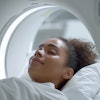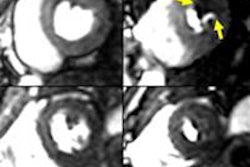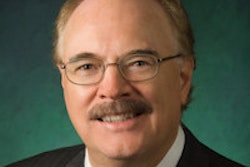Dear AuntMinnie Member,
Two new studies published this week in JAMA Internal Medicine raise questions about whether breast MRI is being used appropriately.
In the first study, researchers from Seattle tracked utilization of breast MRI from 2005 to 2009. They found that use nearly tripled over the study period, with the biggest jump coming in 2007, after the American Cancer Society issued its guidelines for breast screening.
In the second study, researchers from Boston analyzed use of breast MRI from 2000 to 2011 in 10,000 women in New England. They also found that breast MRI use grew sharply through 2009, but then it actually began decreasing on a per capita basis.
Both studies also analyzed whether breast MRI is being used correctly. Generally speaking, they found that many women who might not be the best candidates for breast MRI are getting scanned, while some women who meet clinical guidelines aren't receiving exams.
What do the studies tell us about whether breast MRI is being used according to guidelines? You'll have to read our article to find out: Click here or visit the MRI Digital Community at mri.auntminnie.com.
New Mary's Musing
How patients view radiologists (if at all) has been a major source of concern in the medical imaging community of late, and this question is the topic for our latest column by Dr. Mary Morrison Saltz.
Mary recalls the first time a patient was sent to surgery based on her interpretation of medical images. Her anxiety over the case was alleviated by the fact that she knew she was part of a healthcare team working closely together with ample face-to-face interaction.
Do we still enjoy that level of teamwork and interaction? Most would say no, and many would blame technology for the growing gulf between radiologists and other physicians. But Mary believes that technology -- when used correctly -- can be part of the solution, not part of the problem.
Learn more by clicking here, or visit our Imaging Leaders Digital Community at leaders.auntminnie.com.
Social media and healthcare
Finally, anyone with a Facebook account knows how social media is transforming society. But can it also change healthcare?
That's the tantalizing question posed by a new article in our Healthcare IT Digital Community. The story describes the work of researchers from the University of Pittsburgh Medical Center, who developed software called Unite with the goal of using the power of social media to improve healthcare delivery.
Unite includes many of the same features that have prompted social media's rise to prominence, such as push notification, messaging, and community groups. Find out how it works by clicking here, or visit the community at healthcareit.auntminnie.com.



.fFmgij6Hin.png?auto=compress%2Cformat&fit=crop&h=100&q=70&w=100)




.fFmgij6Hin.png?auto=compress%2Cformat&fit=crop&h=167&q=70&w=250)











